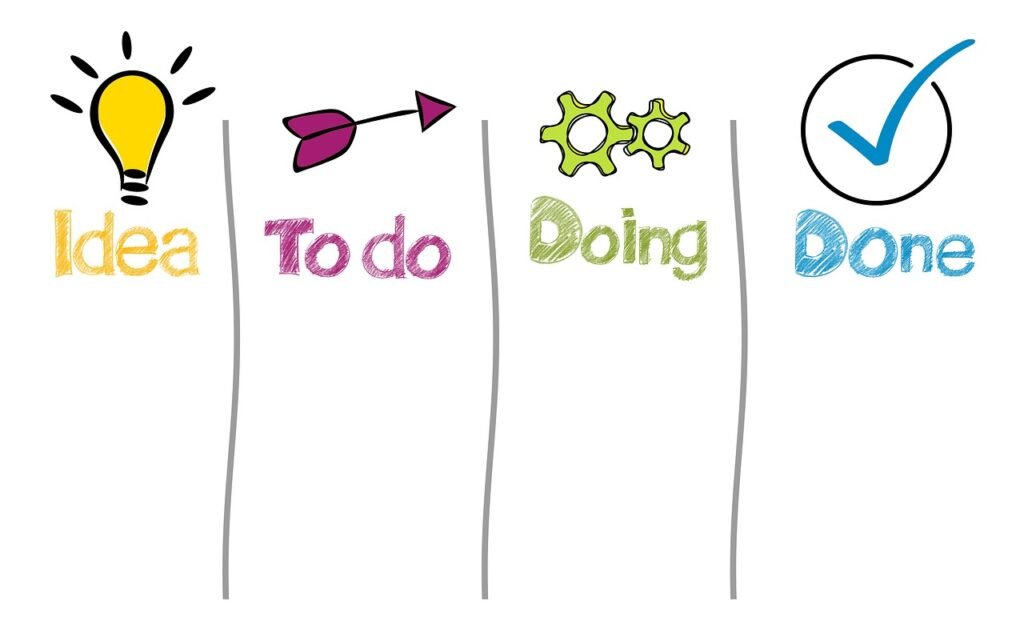11 Steps How to Start a Successful Business in 2024
Updated: 03 Mar 2024
59
Beginning a business can be an exciting journey that could bring financial freedom, personal growth, and fulfilling your entrepreneurial ambitions. However, starting this endeavour involves careful consideration, commitment, and a clear plan.
This complete guide will walk you through the process of launching a successful business, starting with identifying your dream idea to expanding the brand name and increasing the reach of your business. If you’ve got a revolutionary idea or have little capital, This guide will give you valuable insights and practical tips to help you begin your journey to entrepreneurship.
11 Steps to Start a Successful Business
If you want to start a successful business, kindly follow these steps.
1. Discover Your Big Idea
A concept that solves a problem or fills a market gap is at the core of every successful business. Discover your passions, interests, and knowledge to identify your main idea. Take note of what you excel in and what interests you the most. Think of business ideas that you can think of and analyze their potential in the marketplace.
Conduct market research to comprehend consumers’ needs, the competitive landscape, and new trends. Be aware that a solid foundation starts with a distinctive creative idea that resonates with your intended audience.

2. Research Your Product and Audience
Once you’ve come up with an idea for a business that solid, It’s time to go deeper into researching your product or service and knowing who your customers are. Find the key attributes and benefits and assess how it differentiates itself from other products.
Conduct surveys and interviews or use online tools to gain insights regarding your customer’s preferences, pain points, and purchasing habits. Knowing your target market is crucial in adjusting your products to satisfy their needs.
3. Calculate Your Startup Costs
Before proceeding, it’s essential to be aware of your startup expenses. Consider all the costs of establishing your business, such as equipment, materials, legal fees, operating expenses, and marketing. Develop a detailed budget to prevent unexpected financial costs and ensure you have enough money to run your business to profitability.
4. Source Products
If your company sells physical products, getting the correct products is essential. Look into potential manufacturers or suppliers and compare prices, quality, reliability, and aspects. Think about cooperating with local suppliers to help the local community and cut down on the cost of shipping. Make deals and create a robust supply chain to ensure a constant supply.

5. Figure Out Your Shipping Strategy
A well-organized shipping plan is crucial if your business has an online presence or requires shipping products. Select the best shipping partner to ensure prompt and efficient delivery. Provide multiple shipping options to meet your customers’ different preferences.
Install a tracking system that will keep customers informed about their orders and status and provide an enjoyable shopping experience.
6. Develop a Brand Strategy and Brand Identity
Your brand represents the image of your company and how people perceive your offerings. Create a solid brand strategy based on your beliefs, mission, and distinctive selling point. Create a memorable branding identity, including an unforgettable logo, colour palette, and brand guidelines consistent across all media. A well-designed brand identity can build confidence and loyalty among clients.
7. Build and Launch Your Website
A user-friendly and professional website is essential for every company in this digital age. Choose a reputable website hosting provider and create an intuitive site that presents your company’s products or services.
Ensure your site is optimized for mobile phones as shoppers shop using smartphones. Install secure payment gateways and add captivating content that draws visitors’ attention and makes them want to act.
8. Register Your Business
Registering your business for legal operations and protecting your brand is vital. Select the business structure that best suits your requirements, including a sole proprietorship, LLC, partnership, or company. Name your business and acquire all required permits and licenses. This ensures you comply with local laws and establishes credibility with partners and customers.
9. Manage Your Money
The proper management of finances is essential to a profitable business. Create a business bank account to keep separate business and personal financials. Establish a reliable system for accounting to monitor income, expenditures, and profit. Engage an accountant or use accounting software to manage financial and tax reporting. Regularly review your finances and make data-driven decisions to boost your profits.
10. Market Your Business
Marketing is essential for gaining exposure and attracting customers. If appropriate, design an extensive marketing plan incorporating digital marketing, social media, content marketing, emails, and other traditional advertising strategies.
Concentrate on the platforms where your intended audience is the most active. Engage your audience frequently and share helpful content that highlights your knowledge.
11. Grow Your Business
When your business grows, it is essential to focus on scaling up and growing. Examine customer feedback and modify your services or products to meet clients’ changing needs. Think about expanding your product range or looking into new markets. Partner with influencers or other businesses to expand your reach. Always be innovative while staying ahead of other companies to sustain the long-term viability of your business.
Start a Successful Business with No Money:
Starting a successful business with no money may sound like an impossible feat, but it is possible with the right mindset, strategy, and determination. While having capital can undoubtedly make the process easier, there are several ways to bootstrap a business and make it profitable without any initial investment.
Strengths and Skills
One of the first steps in starting a successful business with no money is to focus on your strengths and skills. Identify what you are good at and passionate about, and find a way to turn that into a business opportunity. This could be offering consulting services, freelancing, or creating digital products. By leveraging your expertise, you can provide value to potential customers without a significant financial investment.
Minimize Your Expenses
Being resourceful is another critical aspect of starting a successful business without money. Look for free or low-cost tools and resources to help you get started. By being resourceful, you can minimize your expenses and maximize your chances of success.
Complementary skills.
In addition, consider the sense of community and support that can come from partnering or collaborating with others who share similar goals or complementary skills. Pooling resources and sharing costs can mitigate the financial burden of starting a business. Seek out potential partners who have the same drive and determination as you do, and together, you can work towards building a successful venture.
Invest your Time and Energy
Lastly, be prepared to put in the hard work and dedication required to start a business from scratch. Starting a business without money means that you will have to invest your time and energy into building your brand and acquiring customers. Be willing to hustle and go the extra mile to make your business successful, and feel the satisfaction and fulfilment that comes from your efforts.
Conclusion
Starting a business can be enjoyable and satisfying if you follow this comprehensive guide to help you get the skills and knowledge required to create a profitable and flourishing company. Remember, challenges often accompany that success, so be flexible and resilient and always look for growth opportunities.
Starting a successful business with no money is challenging, it is not impossible. By focusing on your strengths, being resourceful, seeking partnerships, and putting in the hard work, you can overcome financial constraints and create a profitable business. Remember that success does not come overnight, but with persistence and perseverance, you can achieve your entrepreneurial goals
How Do I Start a Beginner Business?
If you’re new to business ownership, Follow these steps to begin your first business:
1. Identify your passions: Pick a business concept that aligns with your passions and capabilities.
2. Start Small: Start with a primary and manageable business plan.
3. Educate Yourself: Learn business fundamentals like marketing, finance, and management.
4. Network: Join like-minded persons, mentors, or business groups for assistance and support.
5. Take calculated risks: Be prepared to leave your comfort zone but make an informed decision.
6. Stay Committed: A successful business is built with patience and time; be determined even in difficult times.
What Are the 4 Things to Start a Business?
For a startup, you will require four fundamental factors:
1. Idea: A distinctive and feasible business concept.
2. Market: A targeted market interested in your product or service.
3. Capital: Enough funds to cover the costs of starting and the initial operation.
4. Execution: transforming your concept into a reality with planning and actions.
Please Write Your Comments